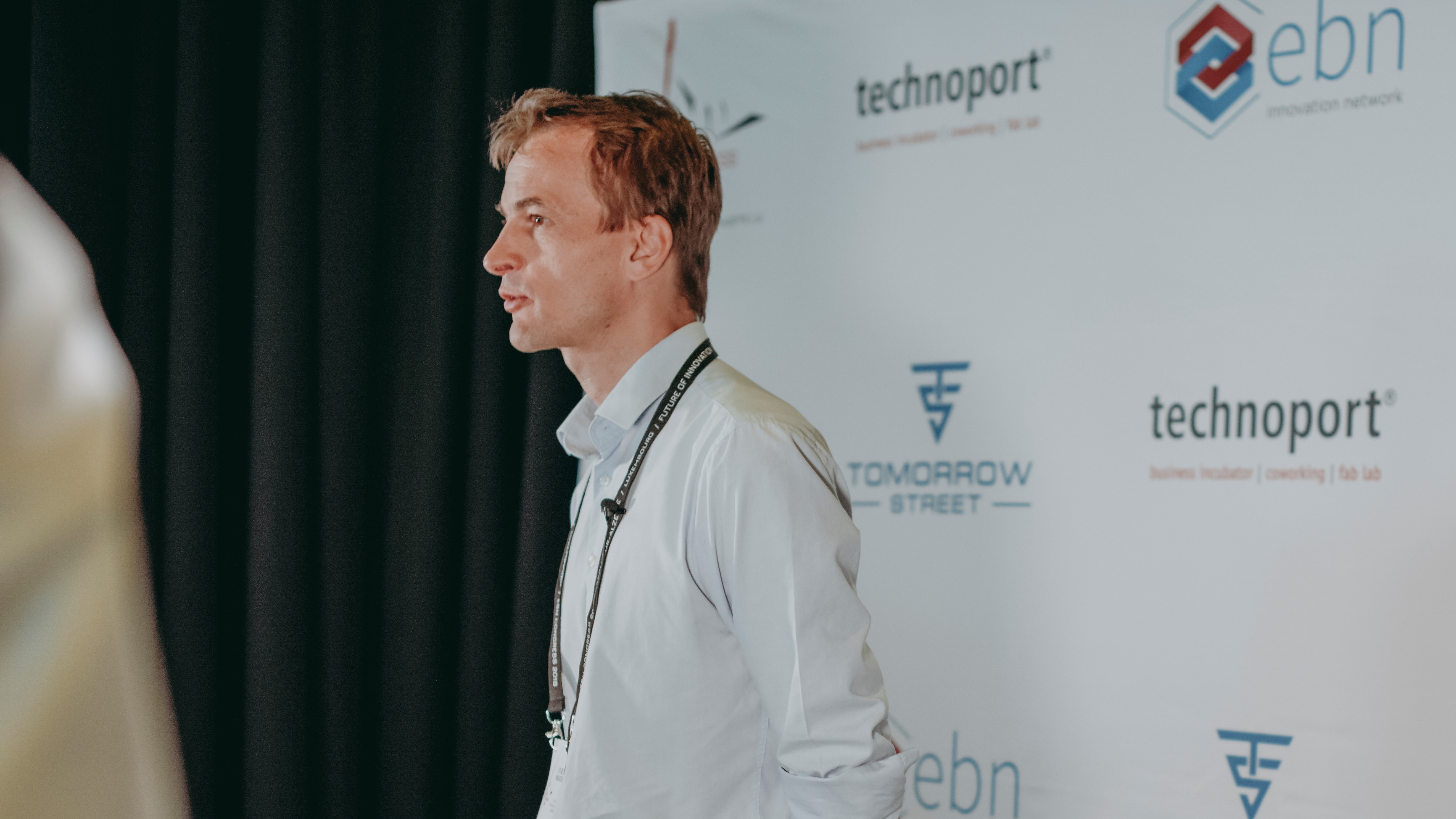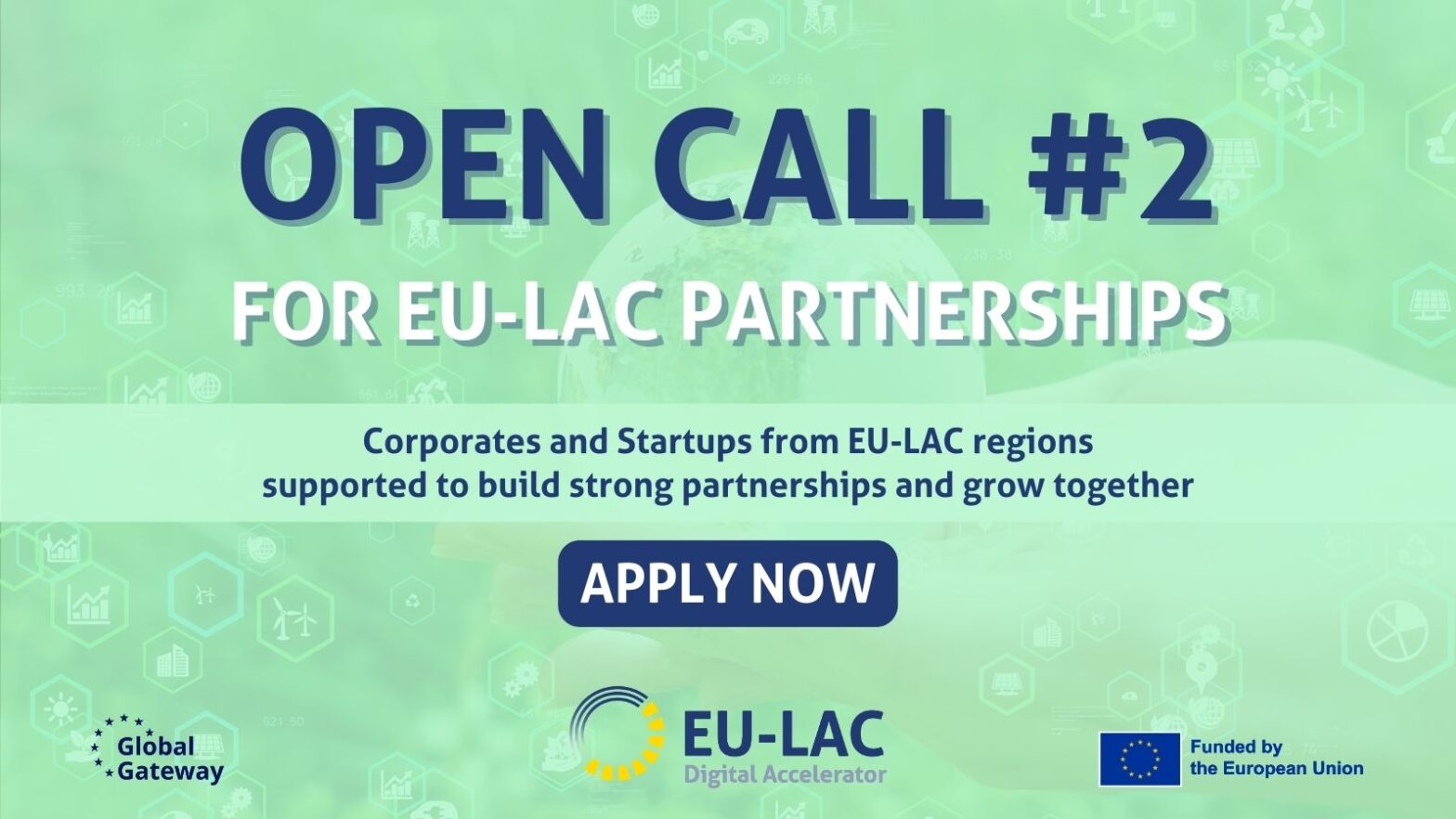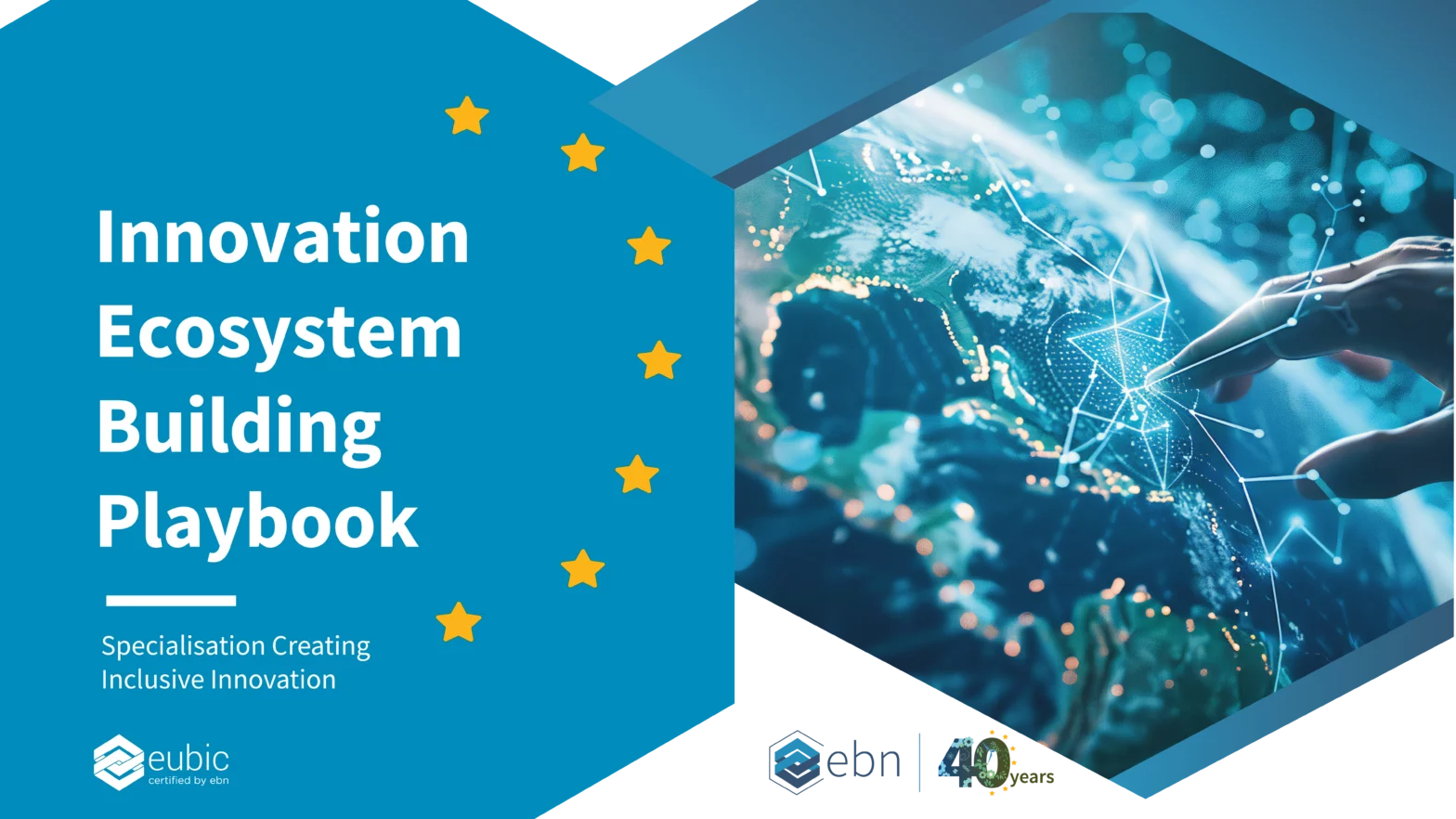David Uhlír | A forward looking retrospective on regional innovation support in Brno and Europe

At the turn of the millennium, David Uhlír, working in the Regional Development Agency of South Moravia – the region for Brno (CZ) – got involved in a pioneering DG Regio promoted project for the developing regional innovation strategies.
“[Regional innovation strategies] were quite a new thing, even in Western Europe, at that time. Nobody was exactly sure what it was. Luckily, we had interpreters. Partners from the Netherlands and in Germany, who guided us through what they did to support innovation in their region”, he remembers, “with this project, we got the opportunity to sit down with our local stakeholders and ask: what can we do to support the economy in our region?”
At that time, Brno was undergoing a sharp economic downturn. Established industries were disappearing and unemployment skyrocketing. The national strategy of attracting FDI had been ineffective for the region. Traumatically, its first and largest investor only stayed for two years, firing 3000 people on its way out.
'That was the breaking point. When all stakeholders said: we must do something. And, with that project, we had a strategy ready, basically designed to support start-ups and entrepreneurial innovation.'
The region decided to create an innovation agency to implement its strategy. 'Looking in hindsight, being in the middle of a deep crisis facilitated the agreement. With hindsight, it was the severity of the situation that brought the public sector and universities to approach this problem together'. In March 2003, JIC started operations.
Since, Brno saw massive development of its new economy, especially in the high-tech and ICT sector. New locally based companies emerged. Large multinationals decided to establish their R&D operation in Brno, leveraging the skilled workforce of the region. “Of course, I am not objective, but it is not an exaggeration that JIC became instrumental for this economic restructuring”. JIC grew, its clients too and some of which became multinationals. From its humble beginnings, the Innovation ecosystem of the region became vibrant.
“And one of the reasons [multinationals] came, stayed, and grew in the region, as they say, is because they can see multiple new innovative companies being born with whom to connect and partner. Looking at the macro impact of JIC, the number of jobs created by companies that passed through our services is close to 4000. And that is already more than the jobs lost by the first foreign investor.”

Looking internationally: Joining EBN and Certification & Presidency
JIC progressed gradually in its first years, “slowly learning and pivoting by trial and error. Luckily, policymakers were patient and did not enforce strict KPIs. Which was wise, because innovation is risky, it is experimentation”. The centre was unique by Czech standards. To learn from others in the innovation-support field, JIC had to connect with European partners.
“The motivations change over time”. The desire to connect and learn from others was one of the reasons that lead JIC to join EBN so close to its inception. Another prime motivation was recognition, “joining would give us legitimacy”.
In the first years, JIC was not very active in the network. 'Like any membership organisation, if you invest in it, you get something back. Around 2010 we decided to get more involved and become EU|BIC certified'.
Certification was a turning point. 'One of the best experiences I had with EBN. We had an auditor from France, Frederic Daumas. He spent two days interviewing our staff and clients, asking very pertinent questions. And we thought: Ah, this guy knows the business, you know, he knows what he is doing. He gave us the report a few weeks after with very useful feedback. The process made us reconsider how we do what we do and why we do it that way. And so, we decided to be closer to this club, to learn from guys like Frederic'.
That led David to apply for the Czech seat at the EBN board in 2013. 'That was another wow moment. The board was full of highly intelligent people from different backgrounds. People more senior and experienced than I was. Some with a track record in large corporates or in being entrepreneurs themselves'. The experience triggered other activities. 'We started to be more active and joined a couple of international projects developed by EBN. We got to know partners better. And realised that is EBN’s biggest asset. It is a friendly, like-minded community. Everyone is open to sharing experiences. You can call anyone, and you get positive feedback, saying, Yeah, I can help with this'.
In that spirit, David Uhlír decided to run for EBN's presidency. His goal was to increase the sharing of expertise and know-how in the network. It was a presidency that guided EBN through unexpected, troubled, and transformative times, “I see it as a positive result that, together with the CEO, we stabilised EBN and its services, setting it on the right course and better specifying the service offering. We started to deliver what I had in mind, even if through web-based experience-sharing. We started the peer-review exercise, which I find very useful and with a lot of potential, especially to share experiences in many different and specific fields. EBN members have varied and vast expertise that is easy to access and share. We are not competitors. We are just colleagues in the same trade. For me, EBN is a way to giving our daily business a global perspective. You can meet colleagues from different parts of Europe and beyond and see the challenges they are facing. That is something which we all need in our regions. We all want to nurture fast-growing companies that can transform the local economy. So, a wider perspective, with experiences and best practices shared is very worth seeking, and what, in the end, EBN is providing'.

Sharing Best practices for Incubators and Accelerators
'If I were to generalise, I think one thing needed is to start slowly, right? Do not expect miracles overnight. The second thing is to do your homework and correctly analyse your strengths. The third thing, which I think is critical, is to invest in people. Forth, understand the political landscape. Lastly, be lucky'.
Supporting innovation is a long-term game: “make it clear with the stakeholders, the founders that if you want to make a lasting impact, you cannot do it in a year or two. Statistics are always in play. For every ten companies supported, one will probably be successful. But in your first year, you will probably support the first five to eight companies. You may be unlucky. Patience is needed from those funding an EU|BIC”.
Analyse your strengths and weaknesses correctly: “we made a lot of mistakes on the way. But one typical trap into which many regions seem to be falling into is over-emphasising local academic research capacity. The fact that you have good academic research in your region does not mean that there is a business opportunity too, or that there is the capacity to turn that research it into a business. We spent several years working on projects, in biotech for example, because Brno has great research in that field. But turning out a successful company in biotech requires a lot of capital and staff with a very specific set of skills which was hard to come around in our region. We spent several years trying to do this before we realised: okay, this is probably the end and our judgment was over-optimistic at a time.
Be honest with yourself and make an honest and complete analysis of the capabilities in the region'.
Invest in people: “Typically, when the public sector wants to invest in innovation support, they set up an agency but do not set up salaries high enough to attract the best people. And you want the best people if are to make an impact. Otherwise, staff leaves and there is less continuity. You are then unlikely to achieve as much as you want. Betting on people who you believe can make a difference would be the third item.”
Political landscape: “JIC has six founders – the region, the city, and four universities. They all have their political cycles. It turned out to be a great decision, as we were never dependent on just one body. With changes in regional government, in mayor or rectors, come different priorities, but diversity meant that it never happened all would lose faith at the same time. The fact that we were standing on several legs always helped. We were also capable of aligning all stakeholders right from the start, which meant that we were a pet project for all, not for a few. For publicly owned BICS, it is also important to invest quite some energy into connecting with people, especially policymakers, as a part of our business. To identify the incoming politicians and explain what we do before they reach office. Over the past 20 years, this made sure that our innovation-support agenda is taken by others, including from different parties'.
Luck: “Of course, like in a lot of things, you have to be lucky, right? But I always say this is statistics. If you support 100 companies, you are likely to have 10 good ones. And one excellent. As a rule of thumb, you need to grow to be able to hit these numbers.”

Looking Ahead
Successful companies, especially unicorns, can be a massive boost for a region. 'Take Skype, in Tallinn or our local champion, kiwi.com, for example. These companies, growing in a place the size of Tallinn or Brno, which are more or less the same size, leave a lasting impact and help grow a cohort of global business people who learn skills they would not otherwise. And does not matter if they are acquired by external investor afterwards. They leave a massive imprint on the regional economy and future capacity'.
For EBN, “I would like to see EBN as a closer strategic partner for the EU institutions, being consulted in and helping implement regional innovation policy. I would also wish for more informal exchange between members, facilitated by EBN. It started in the last few months, but I would like that to grow further. Many innovation activities remain too national in scope, or even regional. Geographic factors are too determinant on the success of a start-up, and a higher level of European-wide integration would help. Access to capital, access to (specialised) expertise, for example, are harder to find in Brno than in large metropolises like Berlin or London. The connection-making and the capacity to access all the pieces of this jigsaw puzzle to make a company successful should be simpler. A company's capacity to scale up should be more natural, regardless of location. That would be ideal for European innovation. It is very difficult to do but still, I think it is worth trying. And I see EBN as one of the vehicles to drive that change through pooling from members and networking resources.'
For Europe, 'I would like the investment market to become more transparent and fairer. I recently came across quite an interesting research comparing the valuations of companies from Central and Eastern Europe to those in Western Europe and the US. It found that companies from Central and Eastern Europe tend to be a bargain for investors because only very few of them venture as far as the Czech Republic, Poland or Ukraine. But those who do then buy cheaply with larger returns. And the specialised media for start-up investment has large information gaps about some parts of Europe, favouring well-known ecosystems. That then feeds into investors behaviour and bias, which then feeds back to increase media attention to the same few places. That is something the European Commission could tackle by mapping out information fairly and sharing it with investor communities'.








